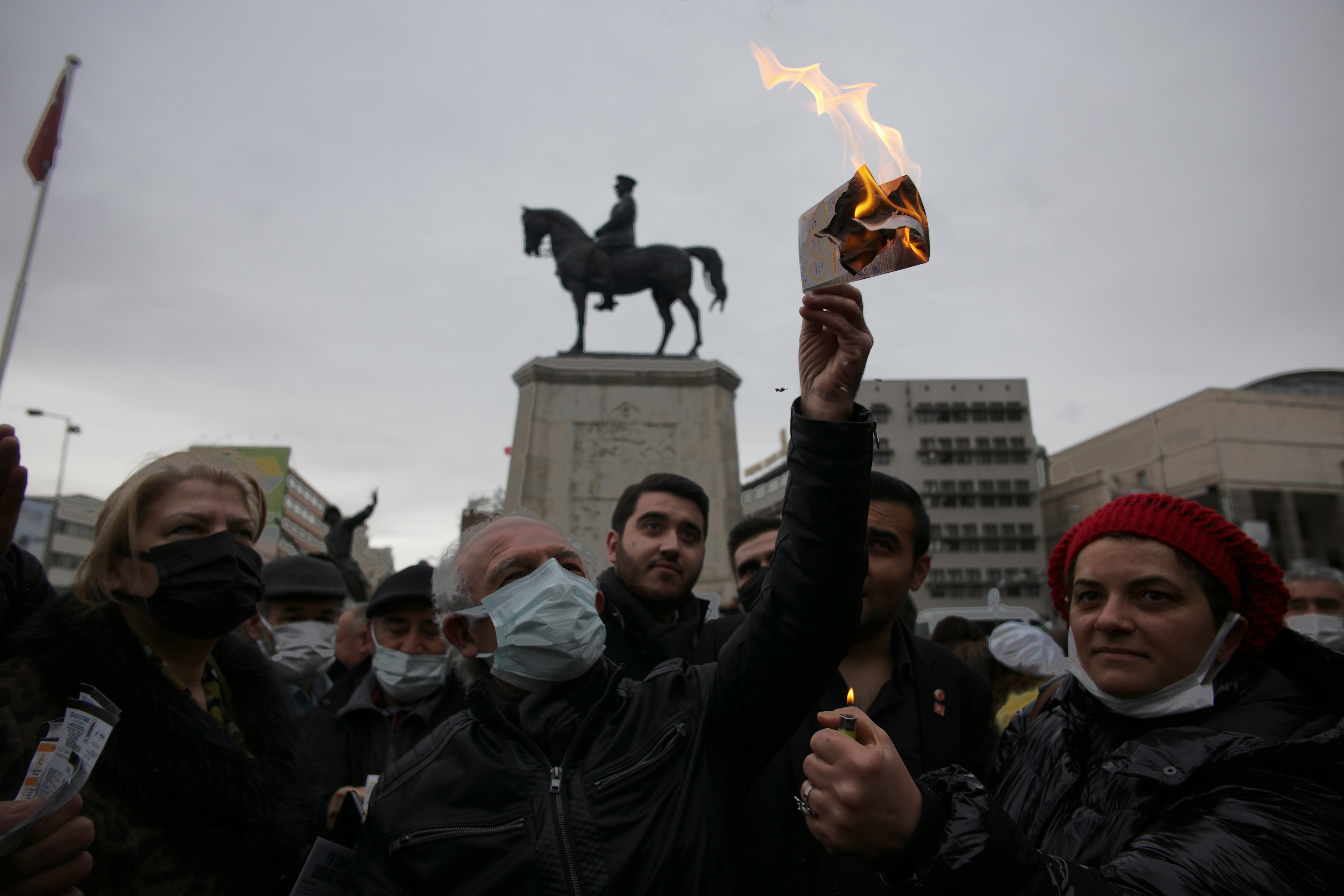Turkey lowers taxes on basic foods to fight high inflation
Turkey’s president has announced a significant reduction in taxes on basic food supplies as the country faces rampant inflation and numerous protests over eroding living standards

Your support helps us to tell the story
From reproductive rights to climate change to Big Tech, The Independent is on the ground when the story is developing. Whether it's investigating the financials of Elon Musk's pro-Trump PAC or producing our latest documentary, 'The A Word', which shines a light on the American women fighting for reproductive rights, we know how important it is to parse out the facts from the messaging.
At such a critical moment in US history, we need reporters on the ground. Your donation allows us to keep sending journalists to speak to both sides of the story.
The Independent is trusted by Americans across the entire political spectrum. And unlike many other quality news outlets, we choose not to lock Americans out of our reporting and analysis with paywalls. We believe quality journalism should be available to everyone, paid for by those who can afford it.
Your support makes all the difference.Turkey’s president announced a significant reduction in taxes on basic food supplies on Saturday as the country faces rampant inflation and several protests and strikes over eroding living standards.
President Recep Tayyip Erdogan said the value-added tax would be lowered to 1 per cent from 8 per cent on food purchases. His decision will go into effect on Monday.
Mr Erdogan said, in addition to the tax discount, the government “expects” food companies to lower their prices by 7 per cent. He said these foods play a significant part in inflation.
Official data for January showed inflation rose to a staggering 48.69 per cent annually, although independent experts say the true number is much higher, more than 115 per cent.
“We will not let inflation crush our nation,” Mr Erdogan said.
Critics, however, say the country is suffering from high inflation because of the president’s insistence on lowering interest rates. He believes inflation is caused by high interest rates, in opposition to established economic theory.
The central bank, whose independence has been eroded by the government, had brought down the key policy rate by 500 points since September to 14 per cent, but paused rate cuts in January.
A currency crisis was triggered by the cuts and the Turkish lira hit record lows in December. Because Turkey relies on imports for its energy needs as well as raw materials and many food supplies, prices have skyrocketed.
The government insists that Turkey’s economic downturn has been caused by foreign interference and external factors. Mr Erdogan declared on Saturday that Turkey would combat the “threats to destroy our economy” with all available means.
Households and businesses have been suffering from sharp hikes in energy prices. Authorities raised electricity tariffs on January 1, spiking prices by more than 50 per cent for many homes and as much as 127 per cent for businesses. Some protests have broken out and many small companies have been sharing their electricity bills on social media to show how close they are to being put out of business.
Strikes are also taking place in Turkey as inflation erodes the value of workers’ paychecks. Cargo, food delivery, factory and warehouse workers have halted work at several companies and social media campaigns to boycott companies that don’t raise salaries are continuing.
Turkey’s minister of treasury and finance, Nureddin Nebati, also announced a step to encourage people to bring gold that they have been saving. He said 1,500 gold drop-off locations would begin operation on March 1 to integrate the precious metal into the financial system as deposits. He added people would be able to withdraw their gold in physical form if they wished to.